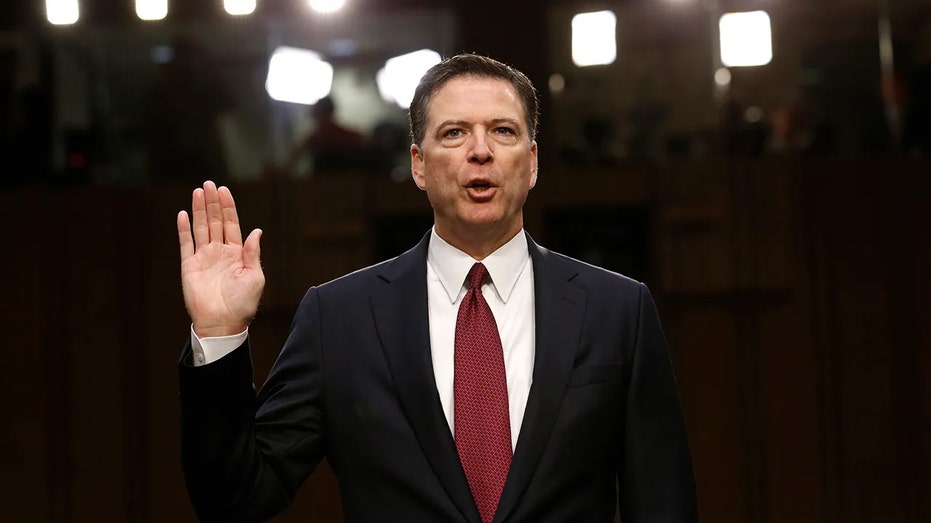Lawyers for former FBI director James Comey asked a federal judge Monday to dismiss his criminal case on the grounds of “vindictive and selective” prosecution, citing what they argued in a new filing is a record of “ample objective evidence” that they argued should suffice to dismiss his case “with prejudice.”
Comey’s lawyers used the more than 50-page filing to tick through a lengthy timeline of the strained relationship between Trump and his former FBI director, whom Trump fired during his first term, in 2017 — less than halfway through his 10-year tenure as FBI director — as well as Trump’s public attacks and criticisms of Comey.
They also noted that much of the damning information has come from Trump himself, or other administration officials.
COMEY SEEKS TO TOSS CRIMINAL CASE CALLING TRUMP PROSECUTOR ‘UNLAWFUL’ APPOINTEE
“The indictment in this case arises from multiple glaring constitutional violations and an egregious abuse of power by the federal government,” his lawyers said in the filing.
Trump ordered the Justice Department to prosecute Comey after taking office for a second time “because of personal spite and because Mr. Comey has frequently criticized the president for his conduct in office,” they said.
“When no career prosecutor would carry out those orders, the president publicly forced the interim U.S. attorney to resign and directed the Attorney General to effectuate ‘justice’ against Mr. Comey,” his lawyers said.
It was one of two extraordinary motions to dismiss the case against Comey that his lawyers filed Monday with U.S. District Judge Michael Nachmanoff, who is overseeing the case in Alexandria.
The other motion asked Judge Nachmanoff to dismiss the case against Comey due to what they argued was Trump’s “unlawful” appointment of Lindsey Halligan, his former personal lawyer, as acting U.S. attorney for the Eastern District of Virginia.
Trump in September announced he would install Halligan as the top prosecutor for the Eastern District of Virginia, replacing interim U.S. Attorney Erik Siebert, who resigned under pressure to indict both Comey and New York Attorney General Letitia James.
Comey’s lawyers noted Monday that Halligan’s appointment was made just three days before Comey’s indictment.
The official “who purported to secure and sign the indictment was invalidly appointed to her position as interim U.S. Attorney,” they told the judge.
“Because of that fundamental constitutional and statutory defect, the indictment is a nullity and must be dismissed. That dismissal must be with prejudice in order to deter the government’s willfully unlawful conduct.”
In order to establish prosecutorial “vindictiveness,” Comey must provide evidence to the court that prosecutors were both acting with genuine animus toward the defendant, and that the defendant would not have been prosecuted but for that animus.
This is a developing news story. Check back shortly for updates.


